Who are all these people? Tackling the Polarisation of Democratic Societies
16. September 2023 Tallinn, EstoniaHatred begins with frenzy and ends with remorse. - Arab proverb
Today's means of communication bring the world to our doorstep, while also creating a possibility of intense informational polarisation and insulation. „Who are all these people? I don't know anyone like this!“ is an exclamation one hears very often lately when people express their astonishment at the extent to which their societies are varied.
It can be heard from non-religious Christians in Europe when faced with religious Muslims living in the same Europe. It can be heard from the liberal elites when faced with the rise of democratic illiberalism. It can be heard from peripheral Europeans of various countries when faced with how their societies come to terms with integrating refugees and migrants of various cultural backgrounds. It can be heard from journalists having to edit anonymous online comments. It can be heard from open society activists defending civil liberties when faced with activists of the insurgent conservative vein.
And yet despite all this informational insulation and societal polarisation, despite the differences, somehow we live together, we share societies. It's a challenge and at that, a mystery that raises many questions. How can we talk to one another across societal and political divides? How should the media effectuate social responsibility? How to show respect to ways of life different of one's own? How to neutralise the impact of all kinds of extremism? Where are the limits of free speech? How to build societies in Europe and the world that are whole and free of hate? These are the issues that the 20th Open Society Forum takes on to address. Our partners for this year's Forum are Baltic News Service and the Norwegian Embassy in Estonia.
Welcome to Tallinn!
Why Tallinn?
Amazing Blend of Old and New
Tallinn never fails to amaze visitors with its historical charm. At its heart is the Medieval Old Town, an area of cobblestone streets, gabled houses, churches and squares that developed here from the 13th to the 15th centuries when Tallinn boomed as a key Hanseatic commercial hub. Old Town has long been the main draw for newcomers – in fact it's so unique that UNESCO added it to its World Heritage List in 1997. Other regions of the city reflect different ages, from the romantic, Tsarist-era Kadriorg Park to the unforgettable, early-20th-century wooden house district of Kalamaja. A modern shopping/business district in the city centre completes the tableau, making Tallinn an amazing blend of old and new.
Historical Meeting Point
Ever since the days of Viking traders Tallinn has been a meeting point for various cultures and nations, so visitors coming from any direction are bound to find something familiar, and something exotic, when they explore the city. Estonia's various rulers – Danish, Livonian, German, Swedish and Russian – have each left their mark on Tallinn's landscape, and their influence can be found reflected in the city's architecture, art and even its restaurant cuisine.
Singing Nation
Estonia loves to showcase its rich culture, especially the traditional mass singing events that define the soul of the nation. Chief among these is the Estonian Song and Dance Celebration, held every five years, which involves as many as 37,000 performers and attracts over 200,000 spectators. There are also a number of major annual events to see including the Jazzkaar International Jazz Festival, Old Town Days, Medieval Days, Tallinn Maritime Days, Birgitta Festival, Tallinn Marathon, Black Nights Film Festival and the Simpel Session skateboard and BMX competition.
Closer than You Think
Tallinn is easy to reach – just a two- to three-hour flight from most European capitals – and once you arrive, getting into town is a snap. Lennart Meri International Airport is only 4 km from the city centre, putting it just ten minutes away from the downtown hotels. The ferry terminals and train station are also located a short distance from the Medieval Old Town. Thanks to its small size and compact layout, Tallinn is easy to explore on foot, eliminating the headaches of bus transfers and taxi rides.
On the Cutting Edge
Tallinn is widely recognised as one of the world’s most technology-oriented cities, offering a range of cutting-edge solutions from e-government to mobile parking. Free Wi-Fi is available just about everywhere, including hotel rooms, conference centres, restaurants, cafés and even public squares and parks, so delegates will never have trouble staying in touch. The city also hosts a dynamic business community, of which tech plays a major part. Tallinn, for example, is home to the world development headquarters of the Internet telephony company Skype.
Green City
For fresh air and relaxation, Tallinn is hard to beat. This small, relatively quiet city boasts an impressive 40 km2 of parks and forests, and has a beautiful, 2-km stretch of sand beach bordering its bay. Visitors can stroll along well-developed seaside pathways, explore the natural beauty of suburban bog trails, take sailing trips to nearby islands or even hit the links at a neighbouring golf course.
Check out also Tallinn Spotted by Locals and Like a Local Guide for the best inside tips, available also for Android and iPhone.
Speakers
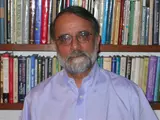
Ahmed Rashid
is one of the best-known writers and commentators on Pakistan, Afghanistan and Central Asia, and increasingly the Middle East a complex area that he has covered in detail for a variety of publications since 1979. He is the author of five books, including the best-selling ‘Taliban‘ (2000) and ‘Descent into Chaos: The US and the Disaster in Afghanistan, Pakistan and Central Asia’ (2008), both of which are on course lists at over 200 universities and defense colleges around the world. Other titles include ‘Jihad (2002)’ and ‘The Resurgence of Central Asia. (1994)’ and, most recently, ‘Pakistan on the Brink, The Future of America, Pakistan and Afghanistan’ (2012). His books have been translated into over 40 languages and they have won numerous prizes around the world in many different countries.
He writes regularly for the Financial Times, the New York Times, the New York Review of Books, Spain’s El Mundo, BBC Online and several Pakistani publications. Foreign Policy magazine chose him as one of the world’s most important 100 Global Thinkers in 2009 and 2010; he serves on the Board of New York’s Committee to Protect Journalist, he is an adviser to Human Rights Watch and he has also served on the Board of Advisers for the International Committee of the Red Cross for five years. He has informally advised governments, the United Nations, international think tanks and other institutions. He recently helped organize the third Lahore Literary Festival that lasted 3 days and bought together 100 writers and artists and an audience of 75,000 people. He has been involved with the event since the first Literary Festival three years ago.
You can read his articles on https://www.facebook.com/ahmedrashidpage
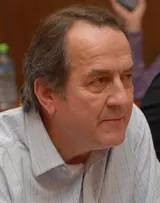
Quentin Peel
is Mercator senior fellow on the European programme at Chatham House in London.
He joined the Financial Times in 1975, and was variously correspondent in Johannesburg, Africa editor, bureau chief in Brussels, Moscow and Bonn. He was foreign editor and international affairs editor from 1994-2010, and finally chief correspondent in Berlin until 2013. He writes about Europe and international relations, security and geopolitics, trying to disentangle fact from fantasy, and read between the lines of propaganda and prejudice.
He's an expert on issues related to the EU's evolution and has been very well received as an analyst of the economic crisis. He also has focused on failed and failing states and countries in transition (from dictatorship to democracy, from poverty to prosperity).
Having covered major world-changing events over the past 30 years as an eye-witness reporter, he sees the social, political and economic forces shaping world affairs with historical perspective, personal knowledge and deep insight.
Quentin’s writing has appeared regularly in The New York Times, Christian Science Monitor, Pravda (Russia), Der Standard (Austria), The Daily Times (Nigeria), and The Irish Times. He appears regularly in broadcast media around the world.
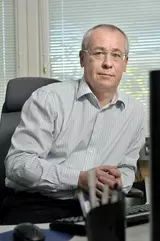
Mika Pettersson
- Foreign news reporter, daily Helsingin Sanomat 1987-1989
- Scandinavian correspondent based in Stockholm, Helsingin Sanomat, 1989-1990
- Foreign news editor Helsingin Sanomat 1994-1997
- Managing editor Helsingin Sanomat 1997-2006
- European Alliance of News Agencies, member of the Board 2009-2012, President 2010-2012
- Editor-in-Chief and CEO Finnish News Agency STT-Lehtikuva 2006-
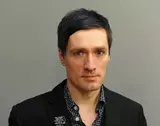
Didzis Melbiksis
is a freelance journalist and UN Refugee agency media consultant with experience from both Latvian and foreign media. His work focuses on Latvian and Swedish contemporary politics, human rights, media ethics, freedom of speech. His academic background is human rights studies, and he often participates in activist actions calling for democratisation and freedom of speech. Melbiksis speaks fluent English, Swedish and Russian languages besides his mother tongue Latvian.
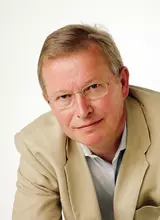
Bernt Olufsen
- Editor Schibsted Media Group
- Editor-in-Chief of national daily VG 1994 – 2011
- Chairman Board of Directors Polaris Media Group 2013 –
- Member of Board Eesti Meedia 2010 – 2014
Schedule
12:40-13:00 Welcome coffee
13:00-13:05 Welcome message from Mrs. Mall Hellam, Executive Director of the Open Estonia Foundation
13:05-13:20 Keynote speech by Mr. Ahmed Rashid, Journalist and Writer, Pakistan
13:20-14:30 1st Panel: Islam as Part of Europe
Recently one of the most debated topics in public sphere has been that of Islam. It rarely fails to create strong emotions and it sells well as news. Yet the current and future role of Islam in Europe and the world deserves a serious, learned and honest debate. Talking Islam means talking about panoply of issues. It means talking about civil and cultural rights, tolerance, immigration, theology, extremism, history, and the future.
Panelists:
- Mr. Ahmed Rashid, Journalist and Writer, Pakistan
- Mr. Ilmar Raag, Strategic Communication Adviser for the Estonian Government, media executive, screenwriter and film director, Estonia
- Moderated by Mr. Quentin Peel, Journalist and Mercator Senior Fellow at Chatham House, UK
14:30-15:00 Coffee break
15:00-16:30 2nd Panel: Media in Face of the Rise of Democratic Illiberalism
Recent years have seen the rise of illiberal societal forces across Europe. Some of them, like France’s Front Nationale or UK’s UKIP, have formed into political parties and have, by democratic means, gained considerable power in several countries in Europe. Others, like PEGIDA, have remained social movements. Yet the tide can clearly be felt. It is in this context that the role of the media comes into question. Is there a societal responsibility that is held by the media? Where are the limits of free speech and if there are any, who sets them and how? We talk about these issues in the context of Scandinavia and the Baltics.
Panelists:
- Mr. Anvar Samost, CEO, Baltic News Service (BNS), Estonia
- Mr. Mika Pettersson, Editor-in-Chief and CEO, STT-Lehtikuva, Finland
- Mr. Didzis Melbiksis, Freelance journalist, Latvia
- Mr. Bernt Olufsen, Journalist, Norway
- Moderated by Mrs. Urve Eslas, Journalist of Postimees, Estonia
16:30 Reception and snacks